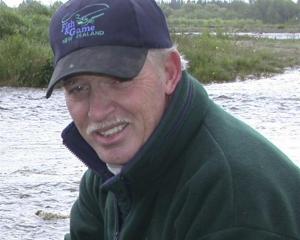And because there is no place like Kings Bay, tens of thousands of visitors gather there just to swim with the sweet, slow-moving and endangered sea cows.
Just about everywhere else in Florida, swimming with manatees is either discouraged or banned, with violators facing substantial fines.
But here in the spring-fed waters of the Crystal River National Wildlife Refuge, a big chunk of the tourist industry centres on close interactions with an endangered species.
There are plenty of opportunities for anyone who visits Citrus County, about 100km north of Tampa, to meet a manatee face to face.
Nearly 40 licensed operators, permitted by the refuge, conduct tours daily by boat or kayak, charging anywhere from $US25 ($NZ34) to upwards of $US100 ($NZ135) a head.
Numerous private and rental boats also ply these protected waters.
"Very exciting," said Kristy Weber, a holidaymaker from Baltimore.
"To think that large animal accepts you is very special."

The manatee dallied around the boat for so long that guests from other tour vessels swam over to watch it.
For years, officials of the US Fish and Wildlife Service - the agency in charge of the refuge - and local dive operations functioned under a loose system of self-policed guidelines for swimming with manatees.
The operators were required to show customers a video explaining what they could and could not do with the endangered mammals: no chasing; no disturbing an animal resting on the bottom; no diving on or riding a manatee; no poking, prodding or grabbing; and no separating a mother and calf.
A visitor could touch a manatee with one open hand, but only if the animal approached the swimmer first.
In addition, several areas of Kings Bay were set aside as no-entry manatee sanctuaries and marked with buoys.
Few tickets were written against violators.
Then, in 2010, the region experienced two periods of unusually cold weather blamed for manatee deaths that nearly doubled the yearly average.
According to the Florida Fish and Wildlife Conservation Commission's Fish and Wildlife Research Institute, 767 manatee carcasses were found in state waters during the past five years; cold stress accounted for 279 of those deaths.
Ivan Vicente, visitors' services specialist at the Crystal River refuge, said only two of the deaths occurred in Crystal River.
But some wildlife advocates began to push hard for officials to do more to protect the creatures from natural and human threats.
In early 2010, a group called Public Employees for Environmental Responsibility filed notice of intent to sue to stop the commercial "swim-with" operations in Kings Bay.
Meanwhile, said refuge manager Michael Lusk, plans already were in the works to enhance the protection of manatees in the area.
No suit was filed.
Last northern autumn, US Fish and Wildlife adopted an emergency rule that formalises what were previously only manatee protection guidelines.
Still, some manatee advocates are not satisfied.
"They say they prefer passive interaction," Colson said, referring to refuge officials.
"But they refuse to give up on allowing people to touch.
"It's an endangered species, a wild animal. You're taming a wild animal."
But Diane Oestreich, who has operated Bird's Underwater Inc with husband Bill in Crystal River for the past 16 years, sees nothing wrong with the new rules, nor with touching willing manatees.
"We've been playing with them since the beginning.
"It's not hurting them," Oestreich said.
"We tell people, `Don't approach them.' It's pretty hard when an animal swims up to you not to give it a little scratch.
"It is in their nature to touch and be touched."
If you go:
• Food and lodging: There are numerous options for dining and accommodation in Crystal River. Visit www.visitcitrus.com for information.
• The manatees: For more information about the new manatee rules at Crystal River National Wildlife Refuge, visit www.fws.gov/northflorida.






